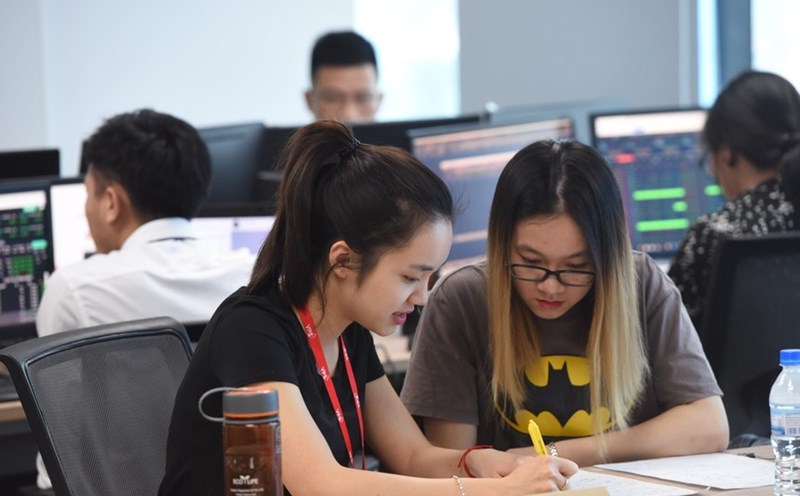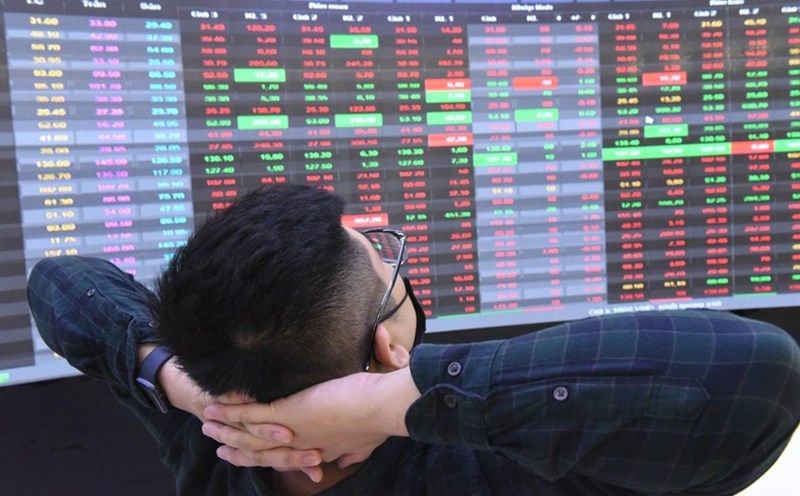After a period of strong fluctuations due to the impact of the US's strict tariff policies, the global financial market, including Vietnam, is recording signs of stabilization.
The VN-Index has just had a week of fluctuations after 2 weeks of being "drowned" by tariff news from the US. The market adjusted slightly and there was strong differentiation between industry groups.
The groups of industries that recovered the best last week were fertilizers and chemicals, seaports, and public investment. On the contrary, the rubber group, technology, adjusted the most strongly.
In general, the fluctuations mainly come from small stocks, showing that large cash flow is still cautious and out of the market due to unpredictable fluctuations. Foreign investors also had a fairly balanced trading week.
According to analysts, the market is still in the adjustment and supply-demand exploration phase after the bottom-up.
The cooling signal of sales at the 1,200-point area shows that there is still a chance of recovery, with the nearest target around 1,250 points. However, the risk of fluctuations still exists when profit-taking pressure may return.
To cope with unpredictable fluctuations along with economic prospects, there are many challenges in strictly controlling the number of stocks held that receive top attention.
The general view given by experts is that for the majority of individual investors, they should pay attention to investing with a longer vision rather than focusing too much on short-term transactions.
Dr. Nguyen Duy Phuong, Investment Director of DG Capital, said that the impact of the tariff policy is still a mystery and it is difficult to accurately predict the next developments.
Strong fluctuations are possible before the expiration of the US counterpart tax suspension period of 90 days. With such uncertainties, participating investors should keep a moderate ratio, should not use leverage to avoid negative fluctuations that may occur as recently.
The Analysis Department of Yuanta Vietnam Securities Company also expressed the view that there will be three scenarios to respond during this period.
The most risky scenario is still the highest tax rate of 46%, the base scenario is the 15-20% tax rate and the most optimistic scenario is the 0% tax rate.
policy uncertainty and unpredictability are the main factors affecting investment strategies at the moment. Therefore, to cope, investors should allocate a proportion to all investment channels, instead of focusing on a single investment channel according to each scenario.
At the present stage, the short-term trend of the market is in an upward trend, so investors need to prioritize the proportion of stocks at 50-60%.
DSC Securities Company also commented that events like the recent one are often a catalyst for sharp declines in stock prices in the short term, but also an opportunity to accumulate valuable assets at deep discounts.
Currently, market sentiment is still overreacting to short-term risks, while the business foundations of some industries such as banking and securities are still recovering positively. For long-term investors, this could be a good time to accumulate bank stocks at the most attractive valuation in many years. Investors should calmly observe, select stocks with good foundations, and strictly manage risks to prepare for the upcoming recovery cycle, DSC experts said.












